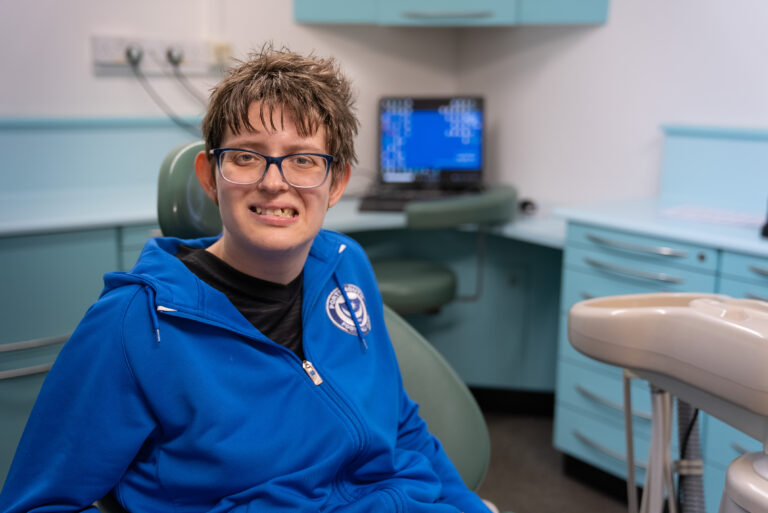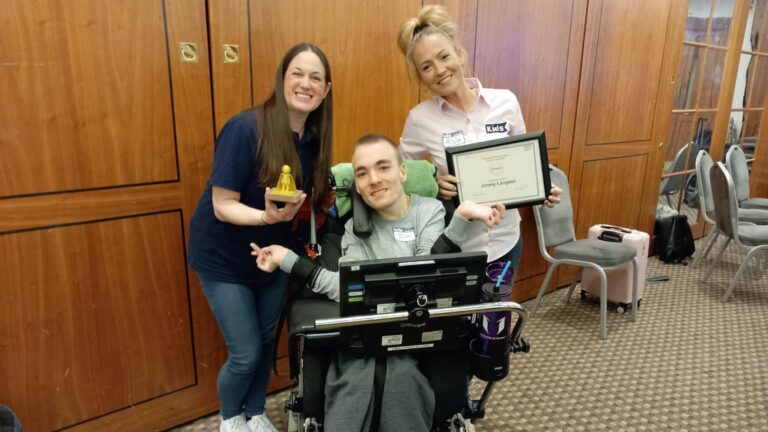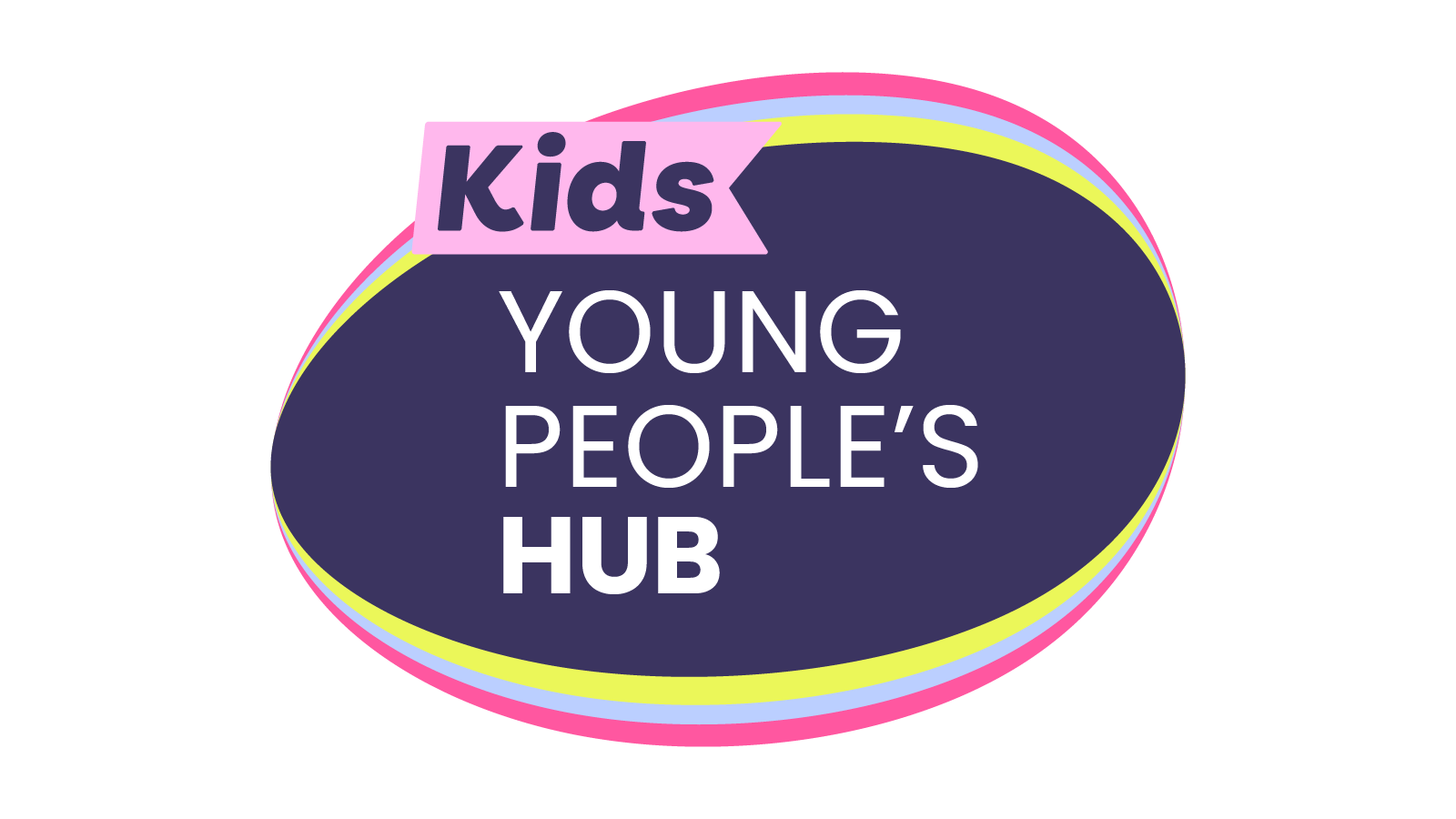Your health journey
Annual health assessments play a vital role in ensuring individuals with special needs receive the care and support they need to thrive.
We spoke with Carly, one of our young people who is a passionate advocate for annual health checks. Together, we’ve created this guide, to help walk you through everything you need to know about annual health checks for young people on the disability register in the UK.
Understanding the Disability Register
First things first, how do you get on getting on the disability register?
- The disability register, also known as the learning disability register, is a list maintained by local authorities in the UK.
- To get on this register, you will typically need to have a formal diagnosis of a relevant learning or physical disability.
- It might include conditions such as autism, Down syndrome, cerebral palsy, or intellectual disabilities.
You can get on this list if you're 14 years old+, with a disability or special need.
You can talk to your GP about thus, and they can help you register.
Your local authority maintains the Disability Register list for your area.
Why are health checks important?
Now, let’s dive into why annual health checks are so important for young people with special needs….
We spoke with Carly, one of our young people who is a passionate advocate for annual health checks. Together, we’ve created this guide, to help walk you through everything you need to know about annual health checks for young people on the disability register in the UK.
Early Detection
- Annual health checks help detect any health issues early on
- This means any treatment can start earlier, and any plans can be made.
All round Assessment
- The annual health check isn’t just about physical health
- It also covers mental health, emotional well-being, and social support needs.
- This means that if you’re feeling anxious or lonely, your healthcare provider can help you find ways to cope and feel better.
Health Education
- Doctors and Health professionals can offer guidance and education.
- You can learn about topics like healthy living, nutrition, exercise, and managing any specific health conditions.
- For instance, you might learn how to cook simple, nutritious meals or how to safely exercise to stay fit and healthy.
Empowerment
- Annual health checks mean young people like yourself become more engaged in managing your own health.
- You’ll learn valuable skills for decision-making.
- You can be empowered to take control of your well-being.
- This means that you can speak up for yourself and make choices about your health that are right for you.
Why are annual health checks?
They help you know your GP and them know you.
They help you detect health issues early.
They cover physical, mental and social health.
They empower you to manage your health.
What to Expect
You might be wondering what actually happens during an annual health check.
Here’s a breakdown of what typically takes place.
Who Conducts Annual Health Checks?
- Annual health checks are typically conducted by GPs, practice nurses, or community nurses.
- They have the expertise and training to assess and address a wide range of health concerns.
- This means that you can feel confident that you’re getting the best care possible from someone who understands your needs.
Preparation
- Before the appointment, you may receive a letter or phone call from your GP reminding you about the upcoming health check.
- Feel free to ask any questions you have and let them know if you have any concerns.
- For example, if you’re nervous about the appointment, you can ask to bring a family member or friend with you for support.
Health Assessment
- During the appointment, your GP or practice nurse will conduct a comprehensive health assessment.
- This may include measuring height, weight, blood pressure, and other vital signs.
- They’ll also ask about your medical history, current medications, and any symptoms or concerns you have.
- For instance, they might ask if you’ve been feeling tired lately or if you’ve had any trouble sleeping.
Discussion and Education
- They’ll take the time to discuss your health with you.
- You can raise any questions or concerns you may have.
- They’ll provide personalised advice and education based on your individual needs and circumstances.
- This might include explaining how certain medicines work or discussing plans for managing stress.
- If you’re not sure about something, don’t be afraid to ask questions!
Referrals and Follow-Up
- Depending on the outcome of the health check, the GP or nurse may refer you to other specialists.
- This may be for further tests or treatment.
- So if you need to see a specialist, like a psychologist or a physiotherapist, your GP can help you get an appointment.
- They’ll also schedule your next annual health check, so that it’s all booked in.
What do you need to prepare for your health check?
You’ll receive an appointment reminder.
Make a list of questions or issues you would like to chat about.
Bring a parent, carer or someone for support.
What to expect during you health check?
Lorem ipsum dolor sit amet consectetur. Sed facilisi in eu diam gravida imperdiet cras ipsum. Bibendum tincidunt enim viverra sapien habitant nisl nec. Lorem ipsum dolor sit amet consectetur. Sed facilisi in eu diam gravida imperdiet cras ipsum. Bibendum tincidunt enim viverra sapien habitant nisl nec.
Your GP will take your height, weight and blood pressure.
They’ll chat about your medical history, medicine and symptoms.
They’ll ensure your overall health and wellbeing.
You can ask any questions and get answers.
You’ll receive guidance and education to help your health.
Your GP will refer you to specialists if needed.
They’ll schedule in future appointments.
Conclusion
Annual health checks are a crucial aspect of healthcare for young people with special needs in the UK.
By having one, you can manage your health, and discover any issues early on. You can also receive the support and guidance you need to thrive.
If you, or someone you care about, is eligible for annual health checks, don’t hesitate to reach out to your local healthcare provider to schedule an appointment. Remember, your health is important, and you deserve the best care possible.
Annual health checks ...
Are essential for anyone with disabilities or special needs
Are performed by GPs, nurses, or specialists who know your health needs
Ensure you get quality health care, and all necessary vaccinations when due
Empower you to manage your health better

Annual Health Checks are so important – they help you manage your own health & keep you up to date with vaccinations and treatments
Carly
Other stories you might like




